Diphenhydramine Risk Assessment Tool
This tool helps you understand your personal risk level when using diphenhydramine (Benadryl, ZzzQuil, Unisom) as a sleep aid based on scientific evidence from medical studies.
The FDA and medical experts warn about serious risks including dementia, falls, and impaired cognitive function - especially for older adults.
Assess Your Risk Level
Risk Assessment Results
Safer Alternatives
- Melatonin: 2-5 mg works faster with no next-day grogginess
- Cognitive Behavioral Therapy (CBT-I): Works for 70-80% of people without side effects
- Sleep Hygiene: Consistent schedule, dark room, no screens before bed
Thousands of people reach for diphenhydramine every night thinking it’s a quick fix for trouble falling asleep. You’ve probably seen the bottles: Benadryl, ZzzQuil, Unisom SleepGels. They’re cheap, easy to find, and promise fast results. But here’s the truth most ads won’t tell you: diphenhydramine isn’t a sleep aid-it’s a sedative with a long list of hidden costs.
How Diphenhydramine Really Works
Diphenhydramine was never meant to help you sleep. It was developed in the 1940s as an antihistamine for allergies. Its drowsiness effect? An accident. But once people noticed it knocked them out, manufacturers repackaged it as a sleep aid. It works by blocking histamine in the brain, a chemical that keeps you alert. Less histamine = sleepiness. Simple, right? But here’s what most don’t realize: diphenhydramine also blocks acetylcholine, a key neurotransmitter for memory, focus, and muscle control. That’s why it’s called an anticholinergic drug. And that’s where the trouble starts.The Next-Day Hangover
You take it at 10 p.m. You sleep through the night. You wake up feeling… off. Heavy eyelids. Brain fog. Slower reactions. That’s not just being tired-that’s the drug still in your system. A 2021 study found 68% of people who took 50 mg of diphenhydramine had impaired thinking the next day. That’s worse than the placebo group, where only 12% felt the same. And it’s not just mental. Your coordination suffers too. Driving after taking it? Dangerous. One study showed its effect on driving was equal to a blood alcohol level of 0.10%-above the legal limit in every U.S. state. For older adults, this isn’t just inconvenient. It’s risky. Falls, fractures, confusion-these aren’t rare side effects. They’re common. One study found 43% of people over 65 who used diphenhydramine regularly reported falls or accidents linked to drowsiness.Long-Term Risks: More Than Just Drowsiness
If you’ve been taking diphenhydramine for weeks or months, you’re not just risking tomorrow’s grogginess. You’re risking your brain. A 2024 Johns Hopkins study tracked adults over 65 for seven years. Those who regularly used anticholinergic drugs like diphenhydramine had a 54% higher risk of developing dementia. That’s not a small increase. That’s a major red flag. The European Medicines Agency and the FDA both now warn about serious mental side effects: hallucinations, confusion, nervousness. These aren’t just rare reports. They’re documented in official safety communications. And they’re more likely in older adults, but they can happen at any age. Even worse, diphenhydramine can make existing conditions worse. If you have glaucoma, it can trigger a painful, sight-threatening spike in eye pressure. If you have an enlarged prostate, it can cause urinary retention-so bad some men end up in the ER. And if you have heart issues, it can speed up your heartbeat dangerously.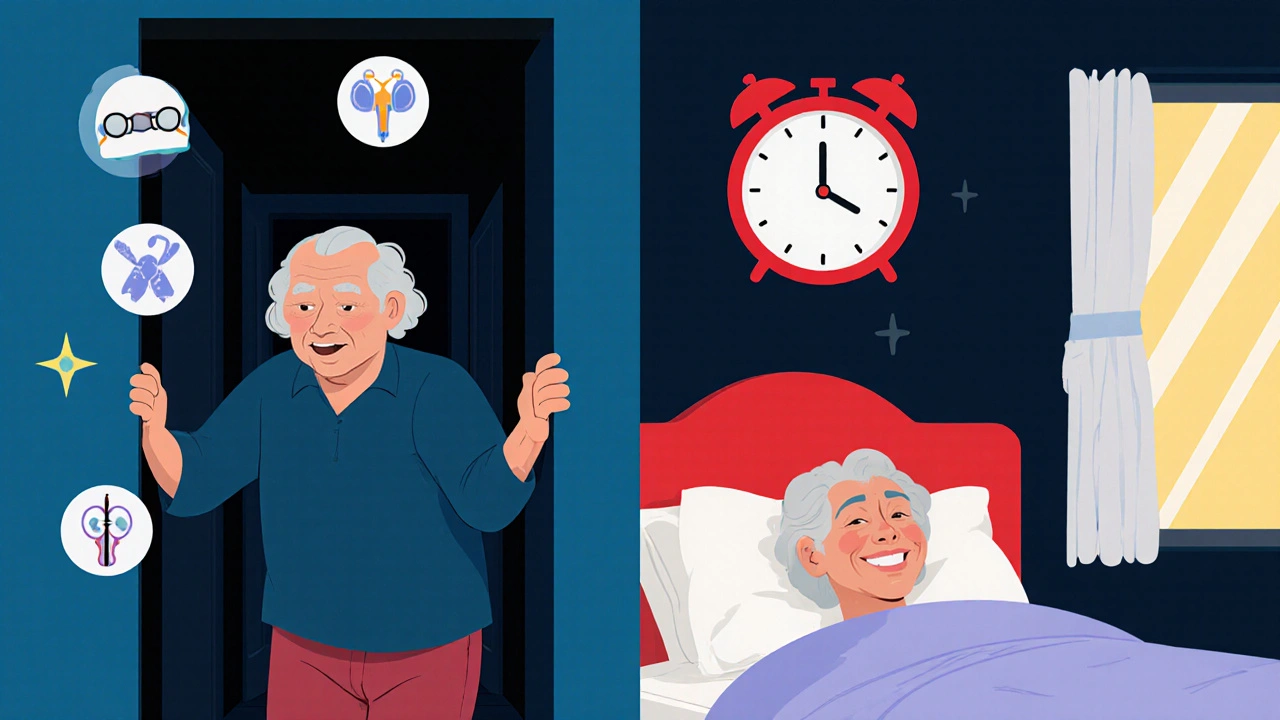
Why It Stops Working (And What Happens When You Keep Taking It)
Your body adapts. Fast. A University of Michigan study found 68% of people who took diphenhydramine nightly noticed it stopped working after just seven days. That’s not tolerance-it’s dependence. You start needing more to get the same effect. Some people jump from 25 mg to 50 mg, then 75 mg. That’s not safe. That’s dangerous. And yet, 73% of users continue taking it past the 14-day limit recommended on the bottle. Why? Because they think, “It worked once, so it’ll work again.” But what they’re really doing is training their brain to rely on a drug that’s harming them.What’s Safer? Real Alternatives
You don’t need diphenhydramine to sleep. There are better options. Melatonin is the most common alternative. It’s not a sedative. It’s a hormone your body makes naturally to signal bedtime. Studies show 2-5 mg helps people fall asleep faster, especially if their sleep schedule is off due to jet lag or shift work. It doesn’t cause next-day fog. It doesn’t increase dementia risk. And it’s safe for long-term use in most people. Cognitive Behavioral Therapy for Insomnia (CBT-I) is the gold standard. It’s not a pill. It’s a structured program that teaches you how to fix the thoughts and habits keeping you awake. The American Academy of Sleep Medicine says it works for 70-80% of people. And the results last. Unlike pills, the benefits stick around for years after treatment ends. If you need something stronger, doctors can prescribe zolpidem (Ambien) or similar medications-but only for short-term use, under supervision. These aren’t perfect, but they’re better than diphenhydramine. And they come with clear guidelines to prevent dependence.What About Other OTC Sleep Aids?
Doxylamine, found in Unisom SleepTabs, is another antihistamine. It’s similar to diphenhydramine-just longer-lasting. That means even more next-day grogginess. It’s not safer. It’s just slower to leave your body. Don’t be fooled by labels like “natural” or “herbal.” Valerian root, chamomile, or magnesium supplements? Some people find them helpful, but there’s little strong evidence they work better than a placebo. They’re low-risk, but don’t expect miracles. The real winner? Sleep hygiene. - Keep your bedroom cool, dark, and quiet. - Avoid screens an hour before bed. - Get sunlight in the morning. - Don’t nap after 3 p.m. - Go to bed and wake up at the same time-even on weekends. These aren’t magic. But they work. And they don’t come with side effects.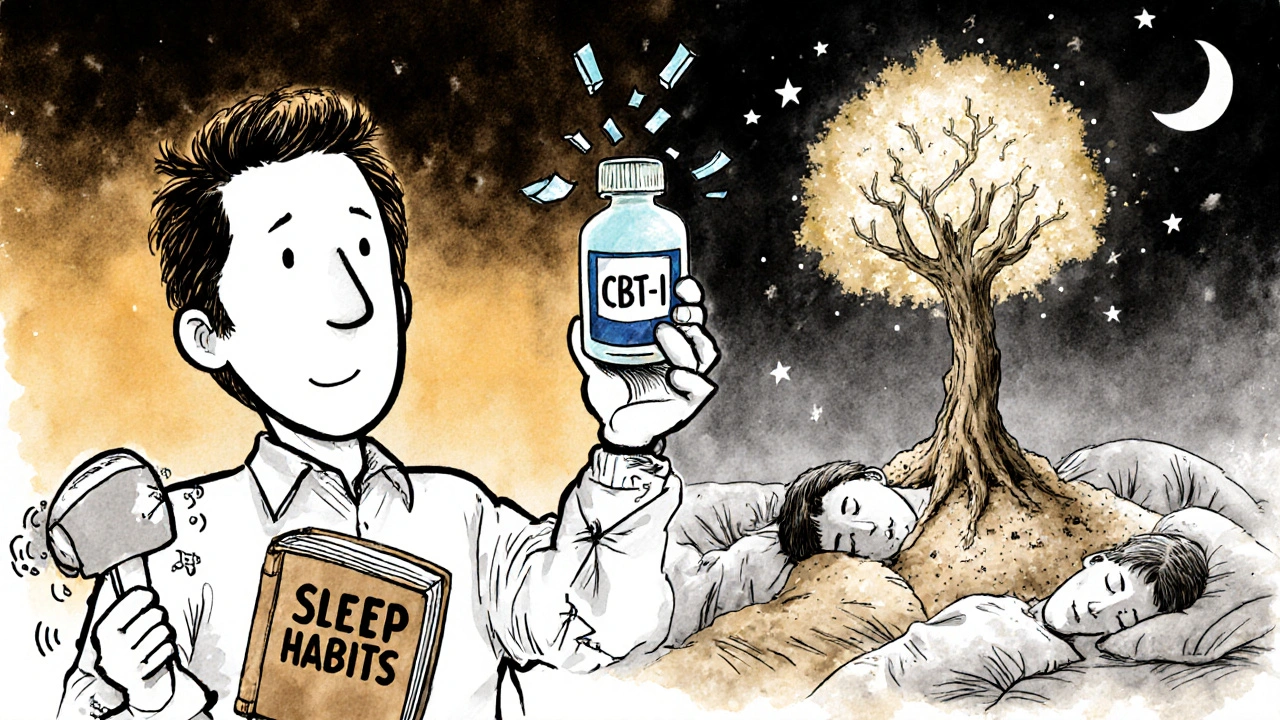
Who Should Avoid Diphenhydramine Completely?
If you’re over 65, avoid it. The risks far outweigh any benefit. If you have:- Glaucoma
- Enlarged prostate
- Heart disease
- Liver or kidney problems
- A history of depression or seizures
What to Do If You’re Already Using It
If you’ve been taking diphenhydramine for more than two weeks, don’t stop cold turkey. Talk to your doctor. They can help you taper off safely. Start with small changes:- Use melatonin (2-3 mg) 30 minutes before bed for a week.
- Set a strict bedtime and wake-up time.
- Write down worries before bed instead of lying awake with them.
- Try a 10-minute breathing exercise if you wake up in the night.
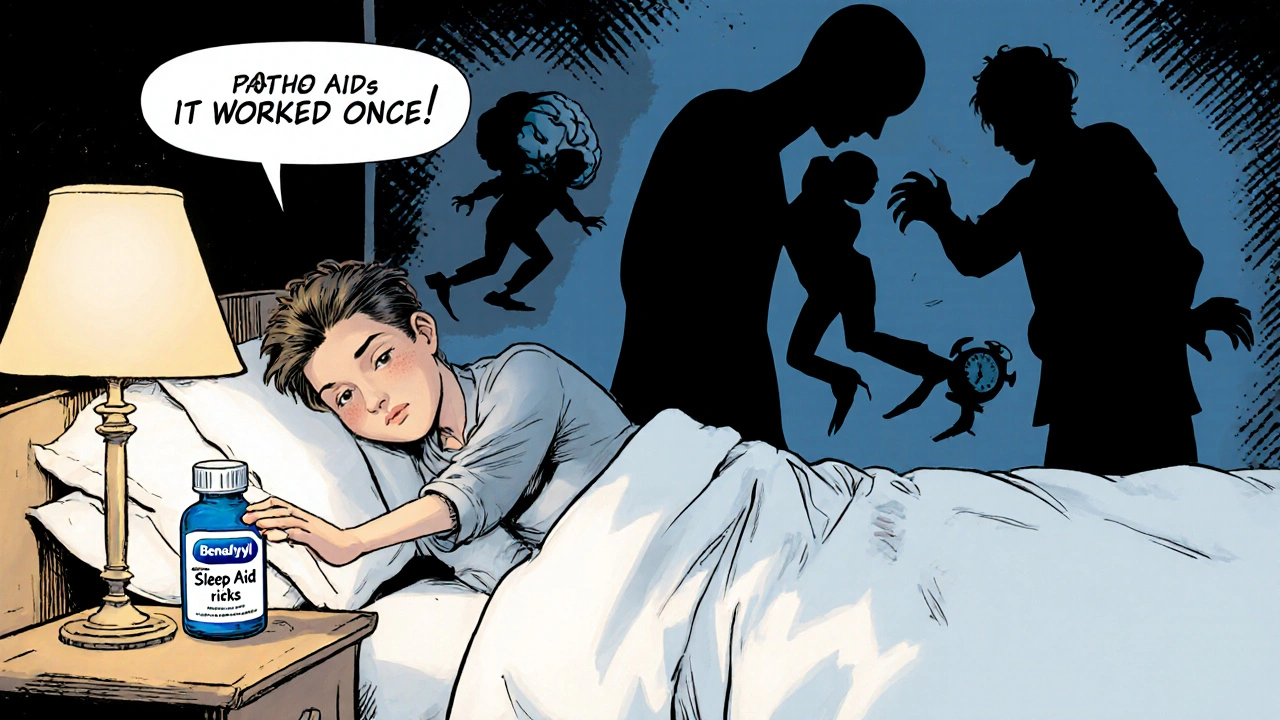
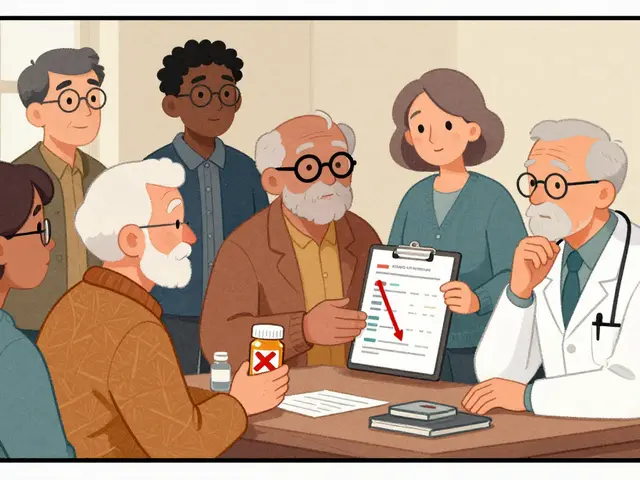
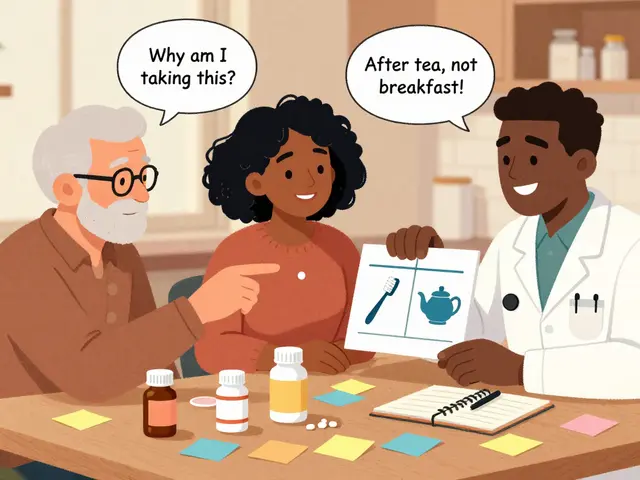
Manish Pandya on 25 November 2025, AT 16:51 PM
Man, I never realized diphenhydramine was basically a brain fog grenade. I’ve been taking ZzzQuil for years thinking it was harmless. Guess I’m switching to melatonin tonight.